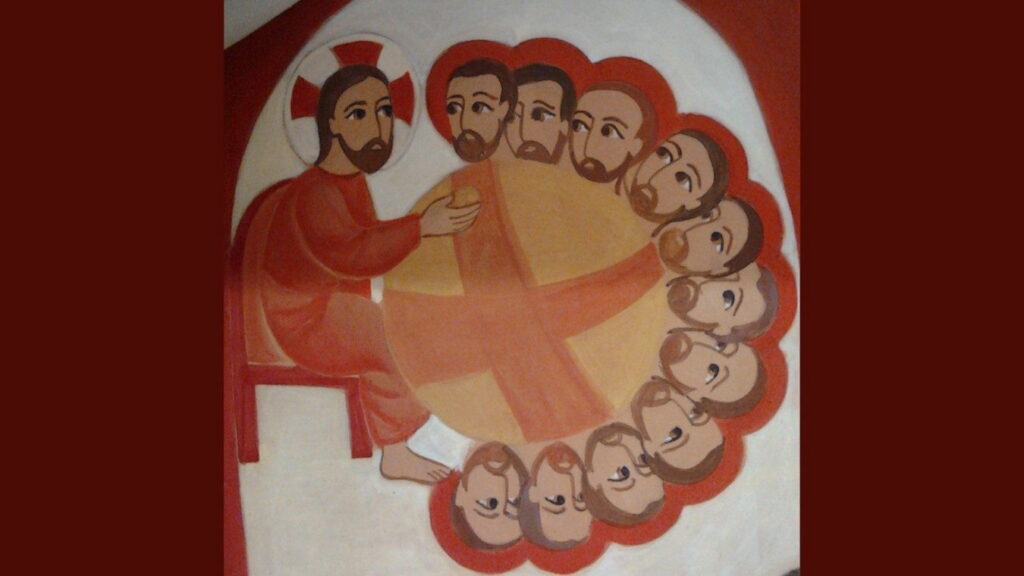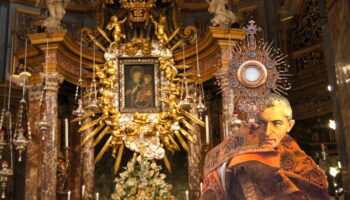
In all cultures, eating and drinking together is a sign of friendship. People share food and drinks together to show that they have the best interest of one another at heart. Eating and drinking together is therefore a sign of good relationship among people.
By Jonah M. Makau *
This explains why people in the traditional African society, reconciled first whenever there were conflicts among them, and only shared food and drinks at the end of their reconciliation effort. It was not the food that reconciled them. The eating and drinking together was a sign of appreciation for the tolerance and understanding attitude of the involved parties. It was a sign of a new beginning.
Even today, we can tell the status of the relationship of people who are eating together, by looking at the atmosphere around them. In fact, when people are not in good terms, even the food they share becomes tasteless. This takes us to the last supper as narrated by the gospel of John. In John 13: 21-33.36-38, (the gospel of Tuesday of the holy week), we hear that Jesus was disturbed. Soon, even his disciples would be troubled as well. There was a serious problem: someone was going to betray him. These few verses give us the image of how the atmosphere was in the room after that revelation of Jesus.
We can certainly imagine the shock of the Apostles when Jesus said that someone would betray him. They must have been very pained. How could someone among them do such a thing? The disciples did not know the person, and therefore the words of Jesus suddenly made everyone become suspicious of his neighbour. It was difficult to tell who the person could be, because all of them wore an innocent face. This explains why Peter told John to ask Jesus who the person could be. The anxiety of Jesus at that moment became a concern for his disciples. It is understandable. It is painful for any group of people to discover too late that there is a traitor among them. We all know how distressing it can be, to realize that there has been a spy among us. We all know how worrying it can be, discovering that someone we trusted was just a fake friend who showed us plastic (simulated) smiles.

The last supper, which was supposed to be a banquet, must have been ruined by that those words. The sadness must have been tangible. How could somebody who had been called and therefore trusted by Jesus, turn into a betrayer, a monster? Did that mean that the person had not been benefiting from all the teachings Jesus had done for almost three years? The Apostles could not understand. It was unimaginable that somebody could share meals with Jesus and finally end up being his “downfall”.
This episode of the Last Supper therefore takes us straight to two important points: Community life and Jesus as our unifying food. Man is a social being, so whether in religious life or not, social life is crucial. For religious, community life is almost as important as the vows. Above all, community life is founded on trust, and wishing one another well. This explains why it is painful when people come to realize that someone pretended to be part of the community only to benefit from the community. After eating with the other apostles, Judas would leave the community poisoned of betrayal, but thirty “pieces of silver” richer. So in truth, Jesus was more disturbed by the fact that someone could live with him for so long, and yet remain unchanged, than by the fact that he was going to be killed. That is what should disturb us. That we don’t change much even after all these years! But are we disturbed? Or we are already accustomed to living in sin? If we are drowning and our consciences are not telling us anything, we should not only be disturbed, we should have already panicked.
The point is that we should evaluate our community life and the unity among us. This is an invitation to remember that it’s not the delicious food that creates harmonious relationship among us. It is our harmonious relationships that turn whatever food that is in front of us into a delicious banquet. Finally, even as human beings with many differences among us, Christ offers himself this Easter as our unifying factor, our healing element and our strengthening force. The last supper ended with the Judas Iscariot going out into the darkness. A tragic outcome for a community that had just shared what should have been a uniting meal. Let’s pray that the Eucharist, which we receive everyday may be an antidote to the many relationship challenges that characterise some of our communities in the world.
* Fr. Jonah M. Makau, IMC, is taking a course of postulation in the Lateran Pontifical University in Rome.



